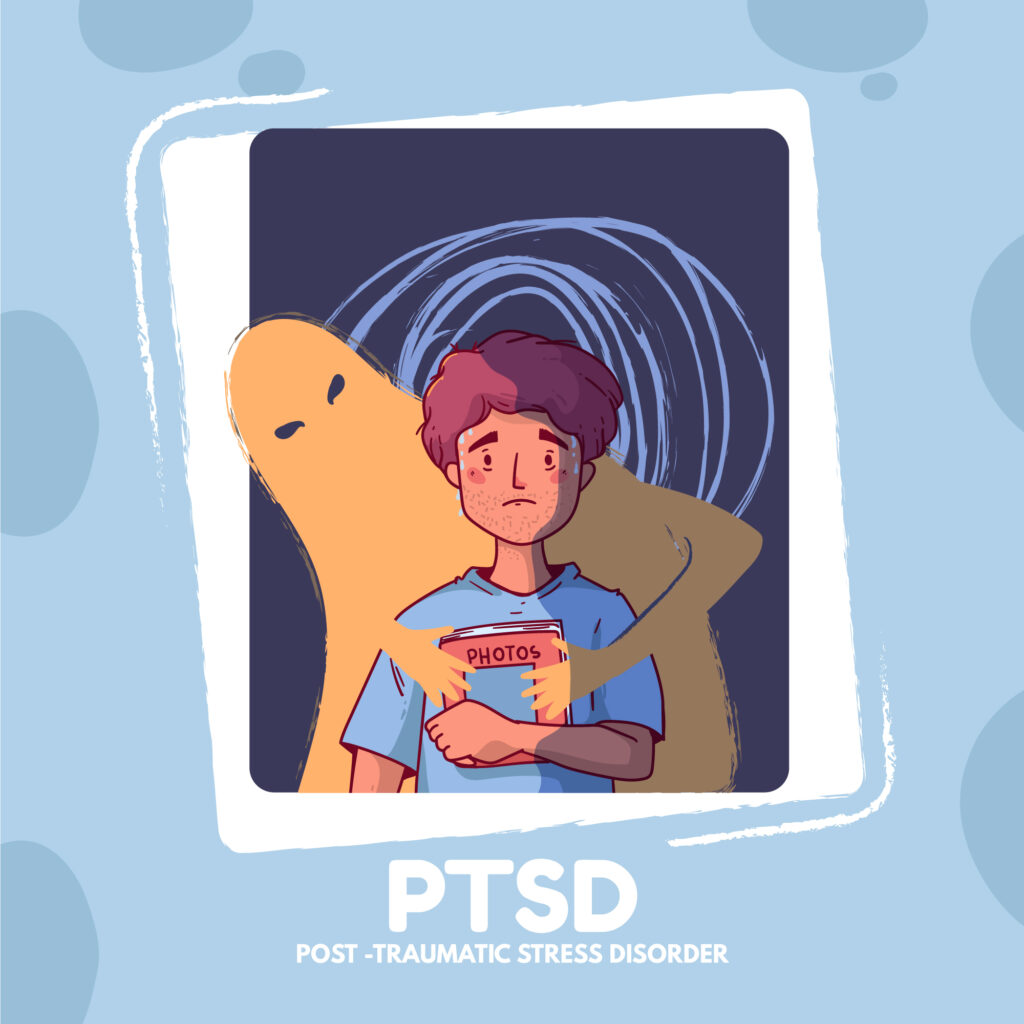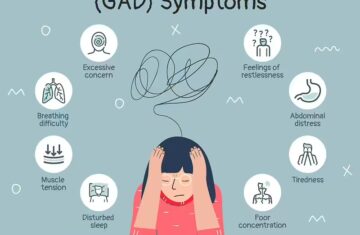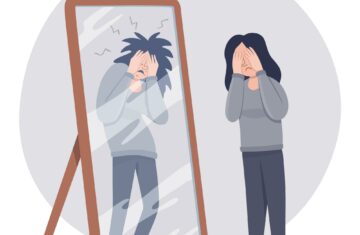
Trauma or PTSD is an anxiety disorder which may develop following exposure to any one of a variety of traumatic events that involve actual or threatened death, or serious injury.
The event may be witnessed rather than directly experienced and even learning about it may be sufficient if the persons involved are family members or close friends. Typical traumatic events which may trigger Trauma/PTSD are:
- Serious physical assault
- Sexual assault
- Kidnapping
- Motor accidents – the most common trigger of PTSD
- Torture
- Child abuse – especially when the stress endured is prolonged
- Fire, flood, earthquake, plane crash
- Battle experiences
The Treatment of PTSD
Typically involves a combination of therapeutic approaches, including psychotherapy, medications, and self-help strategies. It’s important to note that different individuals may respond differently to various treatments, so a personalized approach is often necessary. It’s recommended to work with a mental health professional who can tailor the treatment plan to your specific needs. Here are some common treatment options for PTSD
Psychotherapy:
Cognitive Behavioral Therapy (CBT): CBT is one of the most effective treatments for PTSD. It focuses on identifying and changing negative thought patterns and behaviors related to the traumatic event. Prolonged Exposure Therapy (PE) and Cognitive Processing Therapy (CPT) are specific types of CBT often used for PTSD.
Eye Movement Desensitization and Reprocessing (EMDR):
EMDR involves guided eye movements while discussing the traumatic event. This therapy aims to help process traumatic memories and reduce their emotional impact.
Group Therapy:
Participating in a support group or group therapy with others who have experienced trauma can provide a sense of connection and understanding.
Medications:
Selective Serotonin Reuptake Inhibitors (SSRIs):
Antidepressant medications like SSRIs (e.g., sertraline, paroxetine) are commonly prescribed to manage PTSD symptoms, including anxiety and depression.
Serotonin-Norepinephrine Reuptake Inhibitors (SNRIs): SNRIs (e.g., venlafaxine) are another class of antidepressants that may be used for PTSD.
Prazosin: This medication is sometimes prescribed to help alleviate nightmares and sleep disturbances associated with PTSD.
Other Therapies:
Mindfulness and Relaxation Techniques: Practices like meditation, deep breathing, and progressive muscle relaxation can help manage anxiety and stress.
Yoga and Exercise: Physical activity can contribute to improved mood and overall well-being.
Art or Music Therapy: Engaging in creative activities can provide an outlet for expressing emotions.
Self-Help Strategies:
Education: Learning about PTSD and understanding its effects can empower individuals to cope better.
Healthy Lifestyle: Maintaining a balanced diet, getting regular exercise, and prioritizing sleep can contribute to overall well-being.
Avoid Alcohol and Drugs: Substance use can worsen PTSD symptoms, so it’s best to avoid or limit these substances.
Alternative and Complementary Therapies:
Acupuncture: Some individuals find acupuncture helpful for managing stress and anxiety.
Equine Therapy: Interacting with horses in a therapeutic setting can help promote emotional healing.
Important
CBT currently has the largest amount of research carried out on its effectiveness. CBT/REBT focuses on what people think, how those thoughts affect them emotionally and how they ultimately behave.
When someone is distressed or anxious, the way they see and evaluate themselves can become negative. CBT/REBT therapists work alongside the person to help them begin to see the link between negative thoughts and mood. This empowers people to assert control over negative emotions and to change the way they behave.
CBT/REBT can be delivered at a number of levels of intensity, meaning it can be useful to those who have only just started feeling anxious as well as those with longstanding anxiety problems. CBT/REBT is delivered by a trained therapist, usually in a clinical setting.
This form of therapy focuses on the ‘here and now’ and is not overly concerned with finding the initial cause of anxiety. Once the problem has been explored, the therapist, Me, will help you examine your thought and behaviour patterns and help you to work on ways of changing these.




